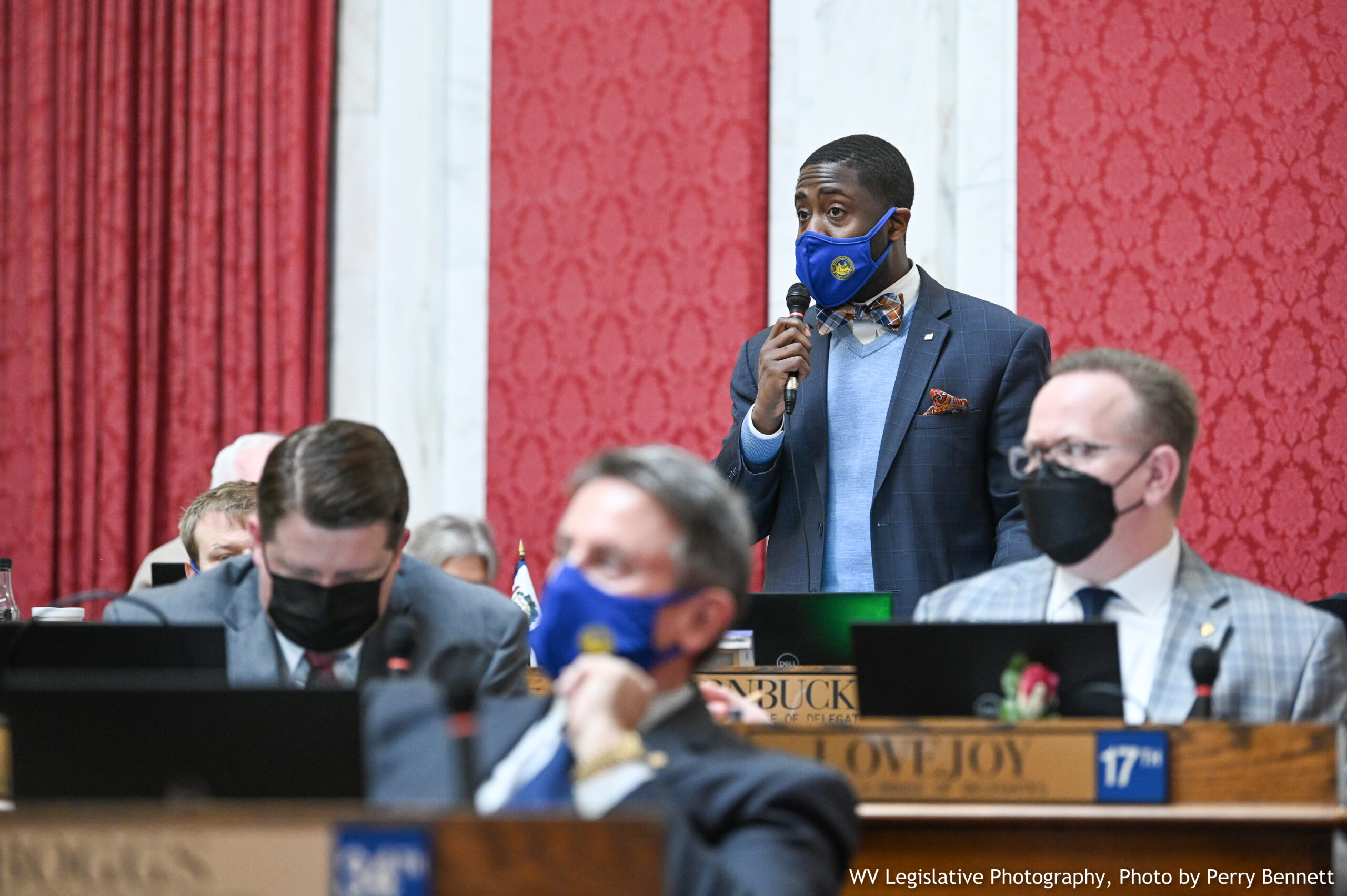MORGANTOWN – The House bill to update and expand charter school legislation saw some tweaking on the House floor Monday, along with a failed attempt to do away with the bill’s virtual charter schools.
It was one of several bills amended on second reading – the amendment stage – during the floor session..
The charter school bill is HB 2012. Members approved a couple amendments offered by GOP Education Committee members and rejected several offered by Democrats.
Among the most significant rejected amendments was one offered by Delegate Sean Hornbuckle, D-Cabell. He proposed to eliminate all the sections allowing for virtual charter schools.
Delegate John Doyle, D-Jefferson, supported Hornbuckle, noting that the governor and the state schools superintendent frequently cite the failure of virtual learning across the state as the reason kids need to be back in their buildings.
They shouldn’t be pursuing virtual schools until statewide broadband is up to snuff, he said.
The amendment failed in a roll call vote, 25-72.
Delegate Mike Pushkin, D-Kanawha, offered one to require three of the 10 charter schools the bill would allow be placed in historically under-performing districts. That failed 24-73.
Delegate Lisa Zukoff, D-Marshall, proposed an amendment to require a charter school applicant provide in its application a description of any transportation services to be offered. She said almost 50% of school kids – about 95,000 kids – live in rural areas.
Education chair Joe Ellington – R-Mercer, countered that state code already requires public schools to provide transportation for kids who live more than two miles from their school.
The amendment failed 25-72.
Ellington and Delegate Joe Statler, R-Monongalia, offered an amendment to require tat the Professional Charter School Board investigate official complaints that allege serious impairments in the quality of education in a charter school, conduct audits as needed and if necessary, require corrective action. It passed in a voice vote.
Members also approved in a voice vote another offered by Ellington clarifying multi-county charter schools. It says when two or more county school boards that function as a single authorizer, if two or more school boards reject the application, then one or more of the individual county boards may approve the application, but the charter school must be located in one of the approving counties.
Following the Ellington-Statler amendment, Hornbuckle offered one to require revocation of a charter where health and safety are at risk.
Ellington argued against it saying immediate revocation doesn’t give a school a chance to correct problems, and relocation is always an option anyway when a school falls short. It failed 22-75.
HB 2012 is on third reading for passage on Tuesday.
Other bills
Delegate Mick Bates, D-Raleigh, moved to send HB 2001, the Jumpstart Savings Act, to the Finance Committe. The bill allows anyone to create an account on behalf of a designated beneficiary, with contributions deductible from state income taxes.
The beneficiary may use the money for buying tools, equipment or supplies for a qualifying occupation; to earn an associate degree or pay certification or licensure fees; pay costs to establish a business.
Bates said it should be reviewed by Finance because state code says all bills dealing with taxes need to go through that committee. Finance chair Eric Householder, R-Berkeley, argued against it, saying Jumpstart is basically a savings program like Smart 529.
Bates’ motion failed on a voice vote. HB 2001 is also on third reading for passage.
HB 2264 aims to exempt hospitals and all health services provided from those hospitals from certificate of need requirements.
A certificate of need is a regulatory process for specified proposed projects and services exceeding a specified dollar threshold, designed to contain health care costs and avoid duplication of services. Many think the CON process stifles competition and development of needed services.
Bates offered an amendment to move the effective date of the bill to July 2022. He said the state Hospital Association doesn’t want the bill. And while competition is good, health care is a free market system. The hospitals don’t need the additional uncertainty and stress during the pandemic.
Health chair Jeffrey Pack, R-Raleigh, argued doing away with CON simply puts all hospitals on a level playing field.
The amendment failed in a voice vote.
Tweet David Beard@dbeardtdp Email dbeard@dominionpost.com




